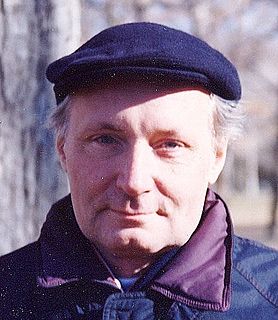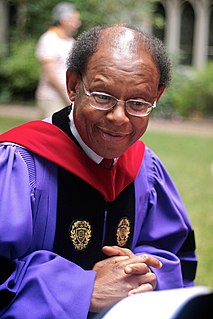A Quote by H. L. Mencken
The essence of science is that it is always willing to abandon a given idea, however fundamental it may seem to be, for a better one; the essence of theology is that it holds its truths to be eternal and immutable. To be sure, theology is always yielding a little to the progress of knowledge, and only a Holy Roller in the mountains of Tennessee would dare to preach today what the popes preached in the Thirteenth Century, but this yielding is always done grudgingly, and thus lingers a good while behind the event.
Related Quotes
The ultimate goal of theology isn't knowledge, but worship. If our learning and knowledge of God do not lead to the joyful praise of God, we have failed. We learn only that we might laud, which is to say that theology without doxology is idolatry. The only theology worth studying is a theology that can be sung!
Theology is not a private subject for theologians only. Nor is it a private subject for professors. Fortunately, there have always been pastors who have understood more about theology than most professors. Nor is theology a private subject of study for pastors. Fortunately, there have repeatedly been congregation members, and often whole congregations, who have pursued theology energetically while their pastors were theological infants or barbarians. Theology is a matter for the Church.
You see, my Lord Archbishop, what is "dubious" about my theology is not that it contradicts particular doctrinal teachings, things are much worse or better: what I want, is no more and no less than a fundamental change in the whole way that theology is done today; but I want this out of faith, not out of faithlessness.
The scientific doctrine of progress is destined to replace not only the myth of progress, but all other myths of human earthly destiny. It will inevitably become one of the cornerstones of man's theology, or whatever may be the future substitute for theology, and the most important external support for human ethics.
We’re seeking — imperfectly at every turn, no doubt — an incarnational theology, a theology that brings radical good news of great joy for all the people, good news that God loves the world and didn’t send Jesus to condemn it but to save it, good news that God’s wrath is not merely punitive but restorative, good news that the fire of God’s holiness is not bent on eternal torment but always works to purify and refine, good news that where sin abounds, grace abounds all the more.
Theology asserts propositions that cannot be proven true; ideologues hold stoutly to a worldview despite being contradicted by what is generally accepted as reality. When ideology and theology couple, their offspring are not always bad but they are always blind. And there is the danger: voters and politicians alike, oblivious to the facts.




































